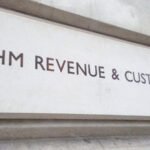Business Asset Disposal Relief (BADR) can help reduce your capital gains tax bill if you sell your business. Before 2020, it was known as Entrepreneurs Relief.
Currently (2024), you can claim BADR up to a lifetime limit of £1m, although this limit has changed several times since the scheme was first introduced in 2008.
At the Autumn 2024 budget, the Chancellor announced that the BADR rate of CGT will increase in April 2025 and April 2026.
Here’s a guide for business owners explaining BADR, how you qualify for the relief, and how to claim it.
Background to BADR (Entrepreneur’s Relief)
Entrepreneur’s Relief was first introduced in 2008. The 2008 Budget abolished the taper relief rules on business disposals and introduced a new flat rate of Capital Gains Tax at 10%.
These measures meant that business owners who had built a business over many years, sometimes their lifetime, would have to pay a much higher rate of Capital Gains Tax when they came to sell their business.
As this could discourage entrepreneurs from building businesses, generating employment, and creating wealth, the government introduced Entrepreneurs’ Relief.
This new relief was designed to compensate business owners who would have paid a lower Capital Gains Tax (CGT) rate under the previous taper relief rules.
The BADR rate is set to increase in April 2025 and April 2026
The reduced 10% BADR rate of capital gains tax will increase to 14% in April 2025 and 18% in April 2026 following an announcement in the Autumn 2024 Budget. Investors’ Relief (IR) will also increase by the same amounts (see below).
The lifetime allowance has changed over time
The relief allowed business owners to pay an effective 10% capital gains tax rate on business disposals up to a lifetime ‘allowance’ of £1m. In the first 2010 Budget, Alistair Darling raised the lifetime limit to £2m.
This was extended to £5m in the 2010 ‘Emergency Budget’, effective 23rd June 2010, and to £10m in the 2011 Budget, effective April 6, 2011.
The lifetime limit was reduced to £1m for disposals made after April 6th 2020.
Free Tide Business Bank Account - £50 Cashback!

Open a free business current account to qualify + enjoy 12 months free transactions. Read our Tide review.
Individuals can claim ER as often as they like, subject to the prevailing lifetime limit.
Entrepreneur’s Relief (BADR) – Qualifying as a business owner
To claim BADR, several conditions must be met during a 24-month ‘qualifying period’ before you sold the business.
- During the qualifying period, you were either a sole trader or an officer (director/secretary), or employee of a limited company.
- During the qualifying period, you owned at least 5% of the capital and voting rights, if the disposal relates to a company.
- You can claim relief on proceeds from a partial or full sale of a business, shares in a company, or on the value of any business assets remaining after the company has ceased trading, as long as you were either a business partner in a company, or the exclusive business owner (if you were a sole trader).
- If the business ceased trading, this must have taken place no more than three years before the sale date.
- If you’re selling a ‘going concern’, the business must be financially viable at the time of sale.
- You cannot claim BADR for the disposal of non-commercial property.
- You can claim as many times as you like, subject to a lifetime allowance. From, April 6, 2020, the lifetime allowance for entrepreneurs relief is £1m. You will pay the standard CGT rate on any proceeds beyond this limit.
- If the business is owned by a couple (spouse or civil partner), each person can apply for ER if they meet the eligibility criteria listed above.
- Further rules apply for the disposal of business assets following business cessation, shares/securities and goodwill.
Investors’ Relief still qualifies for £10m lifetime allowance
Although Investors Relief is similar to BADR, it is a separate Relief aimed at individuals who invest in early-stage companies.
It applies to investors for qualifying disposals made after 6th April 2019.
To meet the eligibility criteria as an investor, the following have to apply:
- You must have held the shares for at least three years before the disposal.
- You must have held the shares continuously for this period.
- The investment must be in a trading company, or the holding company of a trading group.
- Investors’ Relief is only available to investors who are not involved in the running of the business.
- The shares must not be listed on a major stock exchange, although those listed on AIM are allowed. This is to encourage investment in smaller companies, not established ones.
- The shares must be newly issued, not acquired from another individual.
Significantly, the £10m lifetime limit still applies to Investors’ Relief (correct as of October 2024).
Like BADR, the Investors’ Relief rate will increase from 10% to 14% (April 2025) and 18% (April 2026)
Read the official guidance here.
How do you calculate your BADR liability?
- Calculate your total CGT liability relating to the disposal.
- Take off your annual CGT allowance, if you’re eligible (£3,000 in 2024/25)
- Your liability is 10% of the remaining amount.
- Any CGT owed beyond the £1m lifetime limit is levied at the standard higher rate of CGT (currently 20%). Please note that the higher rate will rise to 24% from April 2025.
What is the deadline for paying your BADR liability?
Your claim must be submitted to HMRC by the first anniversary of the 31st January following the end of the tax year in which the qualifying disposal occurs.
For example, if you make an eligible disposal during the 2024/25 tax year (which ends on 5th April 2025), the claim must be submitted (and tax paid) by 31st January 2027.
How do you pay your BADR liability?
You should complete the supplementary capital gains section of your annual self assessment form.
If you cannot do this, make a claim directly with HMRC in writing or by filling in Section A of the Claim for Business Asset Disposal Relief form.
The rules are complex, and you must meet various qualifying conditions before claiming the Relief. For obvious reasons, we recommend reading the official guidance and talking to your accountant before making a claim.










